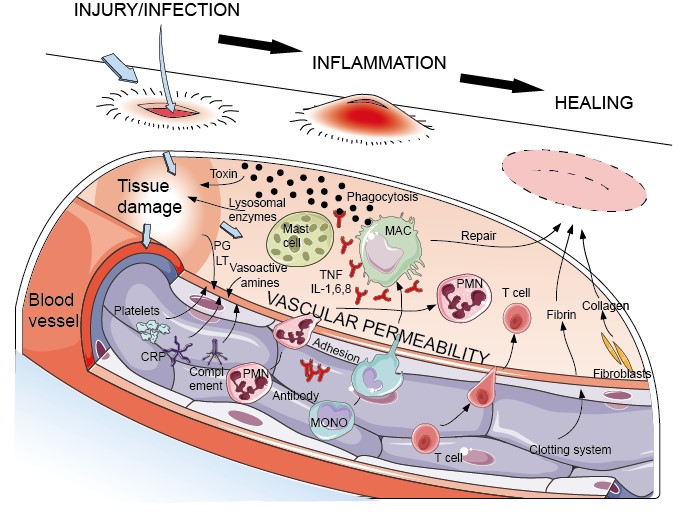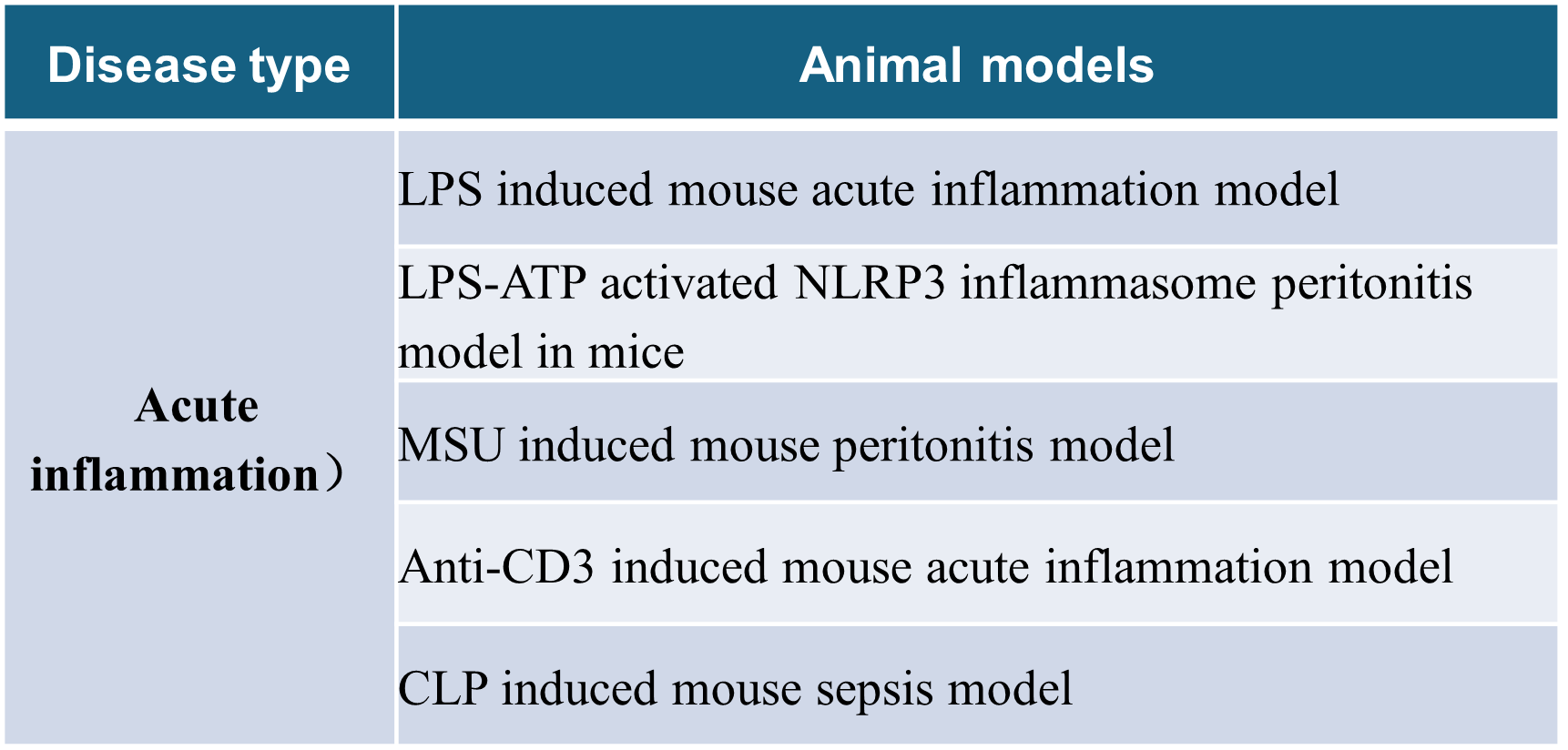Acute inflammation
Inflammation serves as one of the important mechanisms of the body's immune response, and inflammatory animal models are used to assess the role that the inflammatory response plays in the disease process.
Lipopolysaccharide (LPS), a typical endotoxin from the outer leaflet of Gram-negative bacteria, strongly induces an inflammatory response in the body. It is the gold standard reagent for modeling acute inflammation due to the advantages of good reproducibility, easy control, and systemic effects that can be easily identified and measured.
LPS binds to Toll-like receptors (TLRs) and macrophages are activated, leading to the massive production of pro-inflammatory mediators and cytokines as well as ROS. The pro-inflammatory cytokines overexpressed in LPS-stimulated macrophages mainly include TNF-α, IL-6 and IL-1β.

https://www.creative-diagnostics.com/acute-inflammation.htm
Acute inflammation animal models
